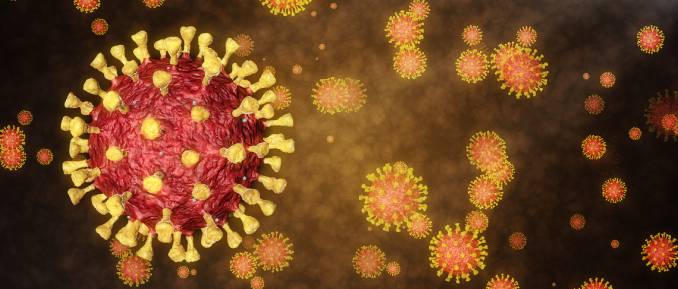
Disclaimer: One of the reference papers has not yet been peer-reviewed.
The COVID-19 pandemic spread around the globe in a matter of months, leaving devastating human health and economic consequences in its wake. From a viral point of view, this incredible success is the result of a careful balance between its deadliness and contagiousness.
While the number of deaths is nearing the 300,000 mark as of May 2020, many who are infected show only mild symptoms or no symptoms at all, carrying out their usual activities and spreading the virus in an exponential manner.
What is the reason behind the striking differences in disease progression? Old age, underlying health conditions, and being male have all been linked to more severe disease outcomes. Yet, many young and seemingly healthy people have died of COVID-19, leaving experts puzzled. While the explanation is likely a complex interaction of several contributing factors, epigenetics might play an important role.
The so-called cytokine storm is the culprit behind the death of many COVID-19 victims. Cytokines are small protein molecules that are released in the body during an infection by components of the innate immune system, the first line of defense against the virus. While they are critical in the response against the infection, for some reason certain people produce them in excessive amounts. This overdrive of the immune system causes cytokines to mistakenly attack the body’s own cells, leading to cell death and organ failure.
In a study published in Clinical Immunology, researchers studied the epigenetic regulation of cytokines in people suffering from Systemic lupus erythematosus (SLE), a chronic autoimmune disease. They found that key cytokine genes were hypomethylated in lupus patients, meaning that they were set to produce cytokines in larger quantities. The different epigenetic regulation of cytokines thus could explain why many lupus patients suffer from severe forms of COVID-19.
Another possible explanation lies in the epigenetic regulation of the ACE2 gene, the human receptor for SARS-CoV-2, the virus that causes COVID-19. Upon infection, viruses use the replication machinery of the host’s cells to multiply themselves. The ACE2 gene plays an instrumental part in the infection process, as SARS-CoV-2 has to bind to the ACE2 receptor on the cell’s surface to be able to enter the cells.
Interestingly, in a study published as a preprint by the Weill Cornell Medicine in Qatar, researchers found different DNA methylation patterns associated with the ACE2 gene between individuals. DNA methylation patterns differed by gender in lung tissues and by age in epithelial cells. In the previous study of lupus patients, ACE2 also showed different methylation patterns when compared to healthy individuals, with lupus patients showing a lack of DNA methylation. As COVID-19 disease outcomes were found to increase in severity with age, underlying health conditions, and in males, ACE2 DNA methylation patterns could play a role in COVID-19 disease progression.
While further studies will have to connect the DNA methylation patterns of key cytokine genes and ACE2 with COVID-19 severity in patients, a deeper look into the epigenetics of the COVID-19 infection could open up avenues towards accurate risk detection as well as personalized treatment options for the disease.
Sources:
Corley, M. J., & Ndhlovu, L. C. (2020). DNA methylation analysis of the COVID-19 host cell receptor, angiotensin I converting enzyme 2 gene (ACE2) in the respiratory system reveal age and gender differences. Preprints.
Sawalha, A. H., Zhao, M., Coit, P., & Lu, Q. (2020). Epigenetic dysregulation of ACE2 and interferon-regulated genes might suggest increased COVID-19 susceptibility and severity in lupus patients. Clinical Immunology.

